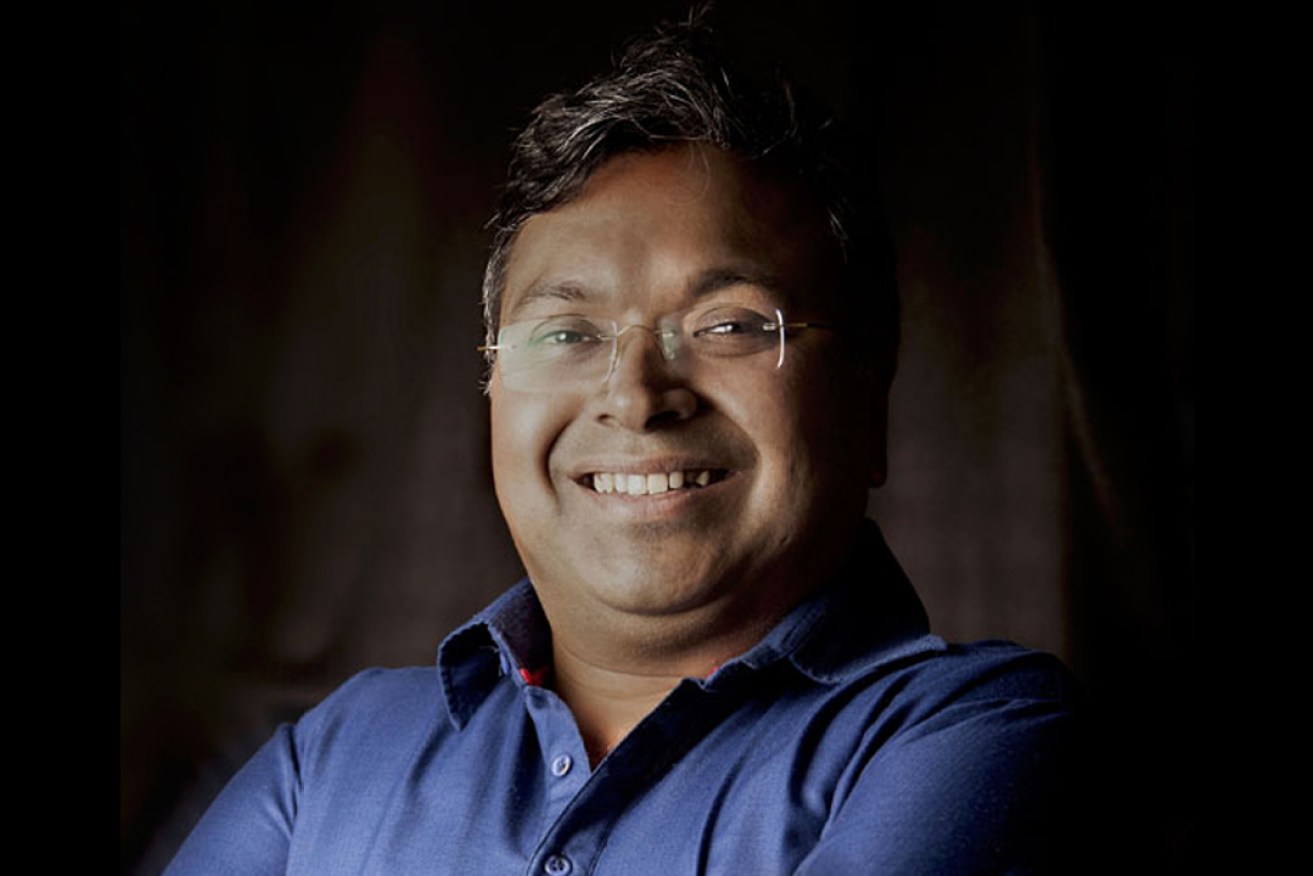Learning lessons from long ago
Celebrated Indian author Devdutt Pattanaik brings his famous modern applications of ancient mythology to the stage at OzAsia this week and, tucked in amidst his advice on business and leadership, is an approach to argument and ideology that could be just the balm the Twitter generation requires.


Devdutt Pattanaik has become famous for drawing practical contemporary advice from ancient texts.
Among his bibliography of more than 30 books and 600 columns, many of his bestsellers have titles like Business Sutra and tackle themes of management, governance, and leadership.
But – while he might make regular appearances on network news shows and have two successful TV series – Devdutt brings the world more than soundbites. His interpretations of mythology include deep reflections on everything from social questions to those of personal identity. It’s this philosophical thinking that brings him to OzAsia as part of the JLF in Adelaide program.
Devdutt’s insights do not stem from formal training. Originally, he worked in medicine and the pharmaceutical industry. His interest in mythology was purely a hobby – but his success grew slowly as he found an ever-growing audience for what he had to say.
“At work, I realised many of the problems I faced had solutions in my hobby. Mythology provided frameworks to solve day-to-day issues,” he says.
“I shared it with friends in informal conversations and they loved it. I wrote articles on them and that became popular. While many people enjoyed mythology, and many enjoyed their decoding, far more people were interested in their relevance in modern times. The more I provided it, the more popular I became.”
Part of Devdutt’s popularity also stems back to his ability to discuss contentious issues without becoming a champion for one perspective or the another.
In Australia, during an era dominated by Twitter recriminations and trial by internet troll, this dedication to reason seems an increasingly rare quality. But, Devdutt believes the tendency toward judgement and argument is a peculiarly Western characteristic.
“I focus on making people aware of the past and showing them how wisdom lies in acknowledgement and accommodation. I don’t prescribe or try to change the world,” he says.
“Some people believe there are two sides of an argument; they hate fence sitters. But I question the argument itself and show that the idea is far greater than the assumed argument.
“That’s a very different way of thinking that is not part of the modern Western academic-activist-political saviour mindset where you have to be in, or out. The Indian way has a different axis, the wisdom axis that is not part of contemporary Western or global discourse that tends to be overly combative.”
For JLF in Adelaide, Devdutt brings this thoughtful perspective to two panels.
The first, on November 9 at 6pm, focusses on the commonalities of creation stories from different cultures and will see Devdutt speaking alongside Adelaide-based Indigenous author, playwright, and poet Jared Thomas.
For his second panel, he appears alongside a host of other authors to speak about gender fluidity and queer sexuality.
Devdutt’s back catalogue includes titles like The Man Who Was A Woman and other Queer Tales from Hindu Lore. His interest in highlighting the queer storylines in ancient texts has been welcomed in India, where – until September of this year – gay sex was punishable by up to 10 years’ imprisonment.
“Ancient Indian culture acknowledged the existence of the queer in both gender and sexuality,” says Devdutt.
“There are many words for queer gender and sexuality. I have simply drawn attention of people to these words. There are queer stories and many customs and beliefs to give them space in society. In colonial times, the binary took centre stage and people forgot this aspect of Indian culture.”
The JLF in Adelaide is part of OzAsia and takes place November 9-11 at The Adelaide Festival Centre. See the full program for more details.





